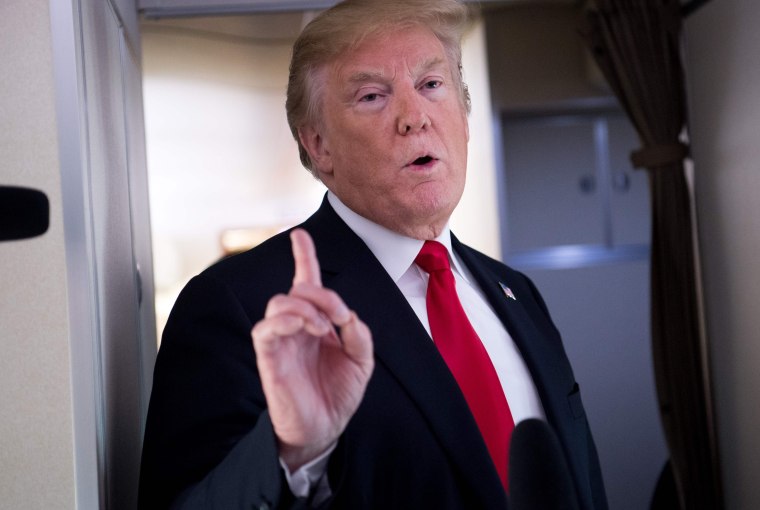On Aug. 12, 2017, Donald Trump responded to violence in Charlottesville by condemning bigotry "on many sides," rather than denouncing the white supremacists responsible. Two days later, in one of the ugliest presidential press conferences in American history, Trump added that there were "very fine people" among the white nationalists rallying in Charlottesville.
A year later, as much of the country recognized the anniversary of those events, and extremists prepared for another "United the Right" gathering, the president took a moment to publish a tweet. In the process, Trump made clear anew how little he's learned over the last year.
"Riots in Charlottesville a year ago resulted in senseless death and division," he wrote on Twitter on Saturday morning. "We must come together as a nation. I condemn all types of racism and acts of violence. Peace to ALL Americans!"Mr. Trump's general call for unity, as Washington braced for the possibility of violence between the white nationalists and counterdemonstrators, echoed his reluctance a year ago after the deadly Charlottesville rally to single out the supremacists for condemnation.
On the surface, Trump's tweet seemed inoffensive. He condemned racism and violence, and called for peace. This may have seemed roughly in line with what Trump was expected to say.
But as was the case last year, context is everything: when it's white supremacists who are gathering to promote hate, the president's rejection of "all types of racism" badly misses the point.
What the circumstances called for was specificity; what Trump offered was generalities.
I realize this is an issue the president has long struggled with, but it need not be complicated. Trump could've used this opportunity to condemn white supremacists -- not "both sides" and not "all types."
We know Trump is capable of occasional specificity. For example, when black athletes protest against racial injustice before a football game, the president has no qualms about blasting them and threatening all kinds of consequences for hurting his feelings. Trump doesn't denounce "all types" of protests that make him feel bad; he makes clear his condemnations of a specific group of Americans whose actions and beliefs he finds objectionable.
And yet, the president seemed reluctant over the weekend to be equally specific as racists prepared to gather in front of his White House.
Even the first line in Trump's tweet struck a passive note: "Riots in Charlottesville a year ago resulted in senseless death and division." There's no real ambiguity about how and why racists instigated last year's violence, and yet, the president again chose not to call them out by name.
The weekend offered another test of presidential leadership. It was also the latest in a series of Trump failures.
